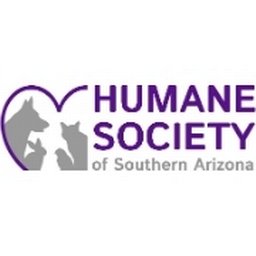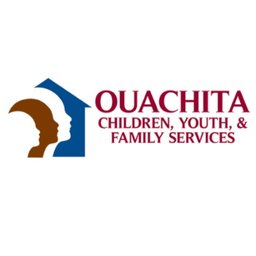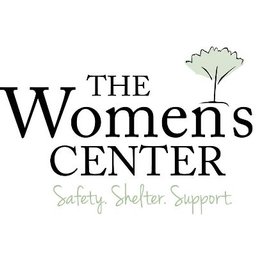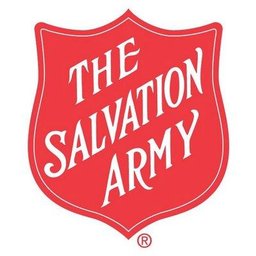Responsibilities:
The Shelter Team Lead Monitor provides leadership and oversight to RES staff while ensuring a supportive and structured environment for both program participants and Drop-In Shelter guests at our women’s campus. This role supports day-to-day shelter operations, enforces policies and procedures, assists with conflict resolution, and ensures compassionate, trauma informed engagement with participants and guests. This role is responsible for documentation and crisis management. This is an on and off-shift position.
Essential Functions:
- Provides direct supervision for Recovery Engagement Specialists as determined by Director of Emergency Shelter.
- Supervise and support RES staff during scheduled shifts.
- Provide coaching, feedback, and informal performance support to shelter staff.
- Act as a point of contact to address and resolve issues that arise while on and off shift, as assigned.
- Foster a respectful, non-judgmental atmosphere.
- De-escalate conflicts using trauma-informed care approaches.
- Responds to crises as they occur, serving as the primary staff responsible while on shift
- Evaluates the health and well-being of guests at all times by making regular shelter rounds
- Ensures that guests understand, complete and sign all intake documentation. (shelter cards, HMIS, etc.)
- Introduce guests to staff and orient guests to the emergency shelter
- Oversee all check-in/ check-out procedures (bed assignment, searches, storage of guest property including medication, and weapons)
- Ensure compliance with health, safety, and confidentiality regulations. Maintains current guest records (shelter cards and rosters) and ensures appropriate storage and confidential handling.
- Create and maintain a healthy environment in the shelter that is trauma-informed and conducive to engagement.
- Maintains accurate inventory for any items issued to shelter guests (towels, blankets, medications, etc.)
- Collaborates with others to achieve common goals, support shelter operations, and create a positive environment and participants and guests. Encourage input, value diverse perspectives. Builds trust by being reliable, cooperative, and solution-focused, even under pressure or in high stress situations. utilize On Call as needed for decision-making
- Communicate between shifts and with other departments about guest issues (guest taken to hospital, movement in program, etc.) via email, shelter notes, and Incident Reports
- Ensures pertinent resources and information are available to guests (resource packets, meeting sheets, policy packets etc.)
- Encourages and spends time listening to guests and offering support and/or connecting with resources as needed
- Conducts, at minimum, a monthly shelter meeting to go over guidelines and expectations with all shelter guests and participants.
- Coordinates after hours referrals from law enforcement, other community providers, or first-time guests.
- Assists Director Emergency Shelter in routinely reviewing and updating policies and procedures.
- Works to reduce barriers to services, increase engagement and retention, and improve guest outcomes
Education and Experience:
- Must be familiar with Healing Transitions program and be able to engage participants in the recovery process.
- Must be able to define problems, collect data, establish facts, and draw valid conclusions.
- Must have knowledge of available resources.
- Computer skills are necessary.
Additional Eligibility Qualifications
- A valid driver's license or reliable transportation is required.
- Applicants who are former participants or alumni of the program must be in good standing with the organization.
Competencies:
- Leadership – Takes initiative and leads by example. Demonstrates reliability, strong decision making, and holds self and team accountable for maintaining shelter standards and supporting participant/ guests, dignity to motivate and engage employees, they will need to be able to role model effective participant engagement skills as well as strong supervisory and management skills.
- Ethical conduct/practice – Be familiar with relevant Codes of Ethics and demonstrate a thorough understanding of boundaries and self-care.
- Organized – Effectively manages time, multitasks, and priorities in a fast-paced environment. Keeps shift operations structured and ensures documentation, supplies, and staff responsibilities are handled consistently. Adapts quickly when schedules or needs shift. This position is responsible for documentation which must be thorough and accurate.
- Guest Engagement – Individual must bring a passion for recovery as well as case management/homelessness and demonstrate willingness to take initiative. Must be non-judgmental, empathetic, genuine and trustworthy.
- Communication – Individual must possess strong written and oral communication skills. Demonstrate clear, respectful, and effective communication with guests’, participants, team members and community partners. Capable of documenting incidents, writing reports, and relaying information accurately. Exchange of information is a crucial component of safe and efficient operation.
- Flexibility – Individual must be able to adapt to a changing environment, schedules, culture, and processes. Must possess creativity to advance our organization and humility to continually grow and learn from others.
- Computer Skills: Proficient in using basic office software (Microsoft Word, Excel, Outlook,) Familiar with email, calendar, and OneNote
- Customer service. Provide respectful, compassionate, and responsive support to all participants, treating them with dignity regardless of circumstance. Listen actively and respond calmly and professionally to concerns and complaints. Must demonstrate capacity to be non-judgmental.
- Decision Making. Must demonstrate sound judgment and ability to utilize available resources (other staff on duty, On Call, etc.)
- Conflict De-escalation: effectively manages tense situations using calm, respectful communication, and de-escalation techniques. Maintains control in crises while prioritizing safety and dignity for all involved
- Self-care and professional boundaries. Maintains appropriate staff-participant boundaries, ensuring respectful, ethical, and non-exploitative relationships. Understand role limitations and communications consistently with professionalism.
Shared Expectations:
Healing Transitions employees are expected to:
- Support and enhance the mission of the organization
- Treat participants and guests, potential participants, their families, our donors, and community partners with dignity and respect
- Commit to a healthy and safe work environment
- Strive to make the organization the best it can be
Supervisory Responsibility:
This position is responsible for supervising some RES staff. This will include some shared supervision and coordination with the Director of Emergency Shelter Operations for staff who work in both the shelter/DIS.
Working Environment:
The work environment characteristics described here are representative of those an employee encounters while performing the essential functions to this job. Reasonable accommodations may be made to enable individuals with disabilities to perform essential functions.
While performing the duties of this job, the employee is occasionally exposed to wet and/or humid outside weather conditions. The noise level in the work environment is usually moderate.
Physical Demands:
The physical demand described here are representative of those that must be met by an employee to successfully perform the essential functions of this job. Reasonable accommodation may be made to enable individuals with disabilities to perform the essential functions.
While performing the duties of this job, the employee is regularly required to talk or hear. The employee frequently is required to sit; use hand to finger, handle, or feel; and reach with hands and arms. The employee is occasionally required to stand, walk, stoop, kneel, crouch, or crawl, and taste or smell. The employee must occasionally lift and/or move more than 30 pounds. Specific vision abilities required by this job include close vision, distance vision, color vision, peripheral vision, depth perception, and ability to adjust focus.
Travel:
There are no travel requirements.
Language Skills:
Must have the ability to read, analyze, and interpret common legal documents; the ability to respond to common inquiries or complaints from clients, or members of the community; and the ability to effectively present information to top management, public groups, and/or board of directors.



